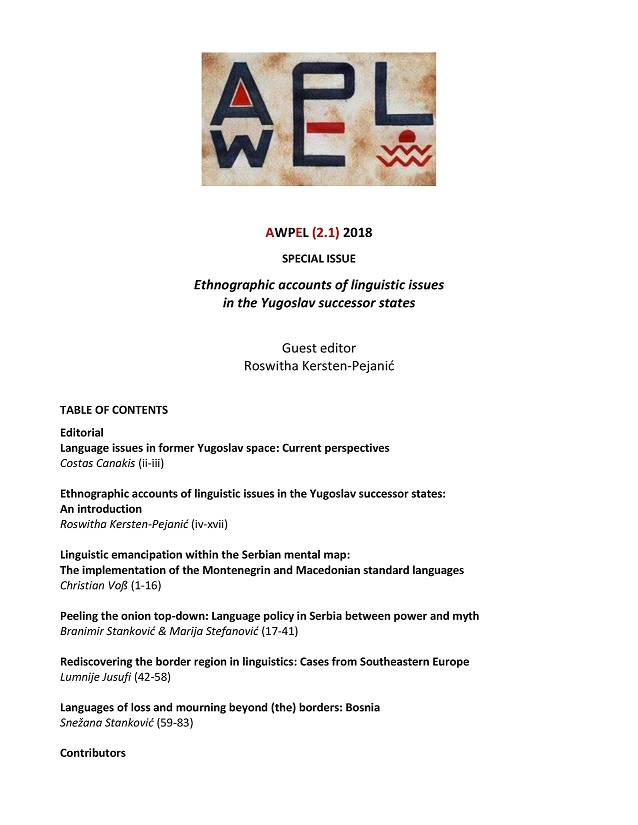Ethnographic accounts of linguistic issues in the Yugoslav successor states: An introduction
Abstract
Doing ethnographic linguistics (or linguistic ethnography) in the area of what used to be Yugoslavia is both a challenging and a promising undertaking. Challenging, in that there are so many ideological traps to take into consideration. Promising, in that there are so many complex matters to take a closer look at. These matters, even when exclusively realized in linguistic means, may have great influence on people’s everyday political, cultural, and social meaning-making. Especially so, as indexical relations and the ideological premises and effects of choosing to use one linguistic realization over the other, has played an important role for all speech communities in the region.
Article Details
- How to Cite
-
Kersten-Pejanić, R. (2019). Ethnographic accounts of linguistic issues in the Yugoslav successor states: An introduction. Aegean Working Papers in Ethnographic Linguistics, 2(1), iv-xvii. https://doi.org/10.12681/awpel.20025
- Section
- Articles

This work is licensed under a Creative Commons Attribution 4.0 International License.
Authors who publish with this journal agree to the following terms:
Authors retain copyright and grant the journal right of first publication with the work simultaneously licensed under a Creative Commons Attribution licence that allows others to share the work with an acknowledgement of the work's authorship and initial publication in this journal.
Authors are able to enter into separate, additional contractual arrangements for the non-exclusive distribution of the journal's published version of the work (e.g. post it to an institutional repository or publish it in a book), with an acknowledgement of its initial publication in this journal.
Authors are permitted and encouraged to post their work online (preferably in institutional repositories or on their website) prior to and during the submission process, as it can lead to productive exchanges, as well as earlier and greater citation of published work (See The Effect of Open Access).



